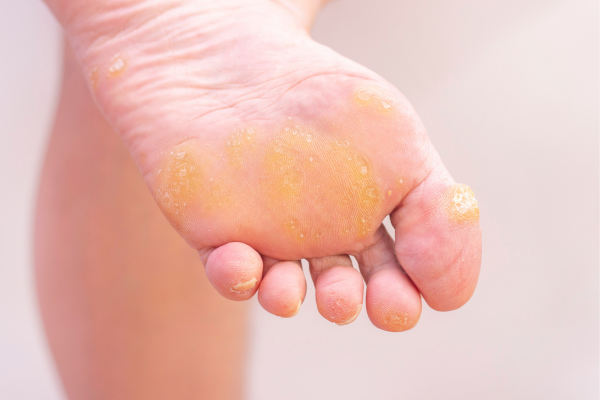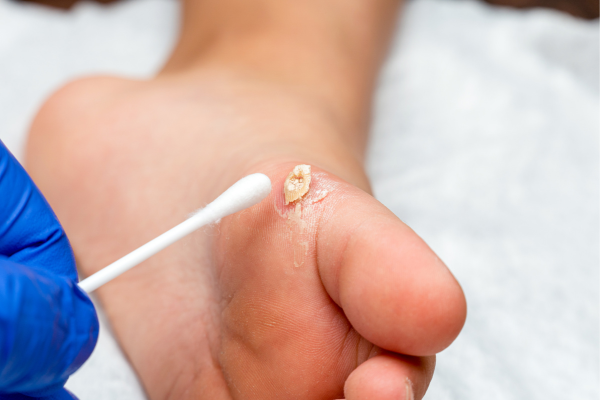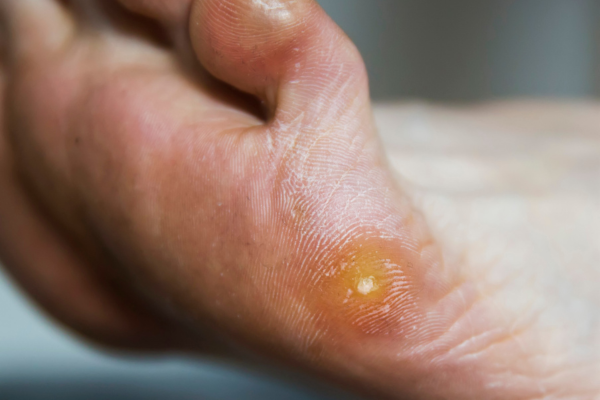


Corns and warts are both skin conditions that can develop on various parts of the body, particularly on the hands and feet. However, they have different causes, appearances, and treatments. Many of our clients come into the clinic thinking they have a corn when in fact they have a wart – and vice versa. This is so common as they can easily be mistaken for one another if you don’t know what you are looking for. Keep reading as we go through how you can tell whether you might have a corn or a wart.
- Cause
Corns: Corns are generally caused by repeated friction or pressure on the skin, often from ill-fitting shoes or abnormal gait patterns. This pressure causes the skin to thicken and harden in response to the irritation.Warts: Warts are caused by the human papillomavirus (HPV). There are various types of HPV, and different types cause different kinds of warts. Warts are contagious and can be spread through direct contact.
- Appearance
Corns: Corns typically have a small, well-defined, and raised circular shape. They can be either hard or soft:
– Hard corns: These are firm and dense, usually found on the tops or sides of toes, as well as on the sole of the foot.
– Soft corns: These are softer and usually form between the toes, where the skin is moist.
Warts: Warts can vary in appearance, but they often have a rough, bumpy texture. They can be raised or flat and can have a cauliflower-like appearance. Common types of warts include:
N.B. In most cases, the skin lines on your feet will continue though the lesion if it is a corn, where in a wart they will not pass through them.
- Symptoms
Corns: Corns usually cause discomfort, especially when excessive pressure is applied to the area i.e. whilst walking if they are on the sole of the foot, or if wearing tight shoes if they are in between the toes.
Warts: Plantar warts are often painless when direct pressure is applied to them, which is why often they are not discovered for some time. In most cases squeezing the wart from its outside borders causes pain (this is how we differentiate between corns and warts if it is not obvious visually). - Treatment
Treatment of corns and warts is very different, so it is extremely important that you do not commence any treatment by yourself before you have seen either your doctor or podiatrist.
Treatment of corns usually involves debridement (removal) of the thick hard skin that usually develops over corns, then carefully removing them with a scalpel. After this, your podiatrist may recommend a change of footwear to reduce the likelihood of the corn recurring, or the use of a silicone or gel toe-sleeve to reduce the pressure in between the toes if the corn is occurring between the toes.
Treatment of warts involves debridement of the top layer of the skin, followed by application of either nitric acid, silver nitrate or salicylic acid to the wart and covering it with a dry dressing. Clients are usually seen once weekly for treatment of warts, until the lesion has disappeared.
If you are concerned that you have a corn or wart that you would like to have assessed, please feel free to visit our clinic where one of our experienced podiatrists will take you through a thorough assessment, diagnosis and treatment plan


